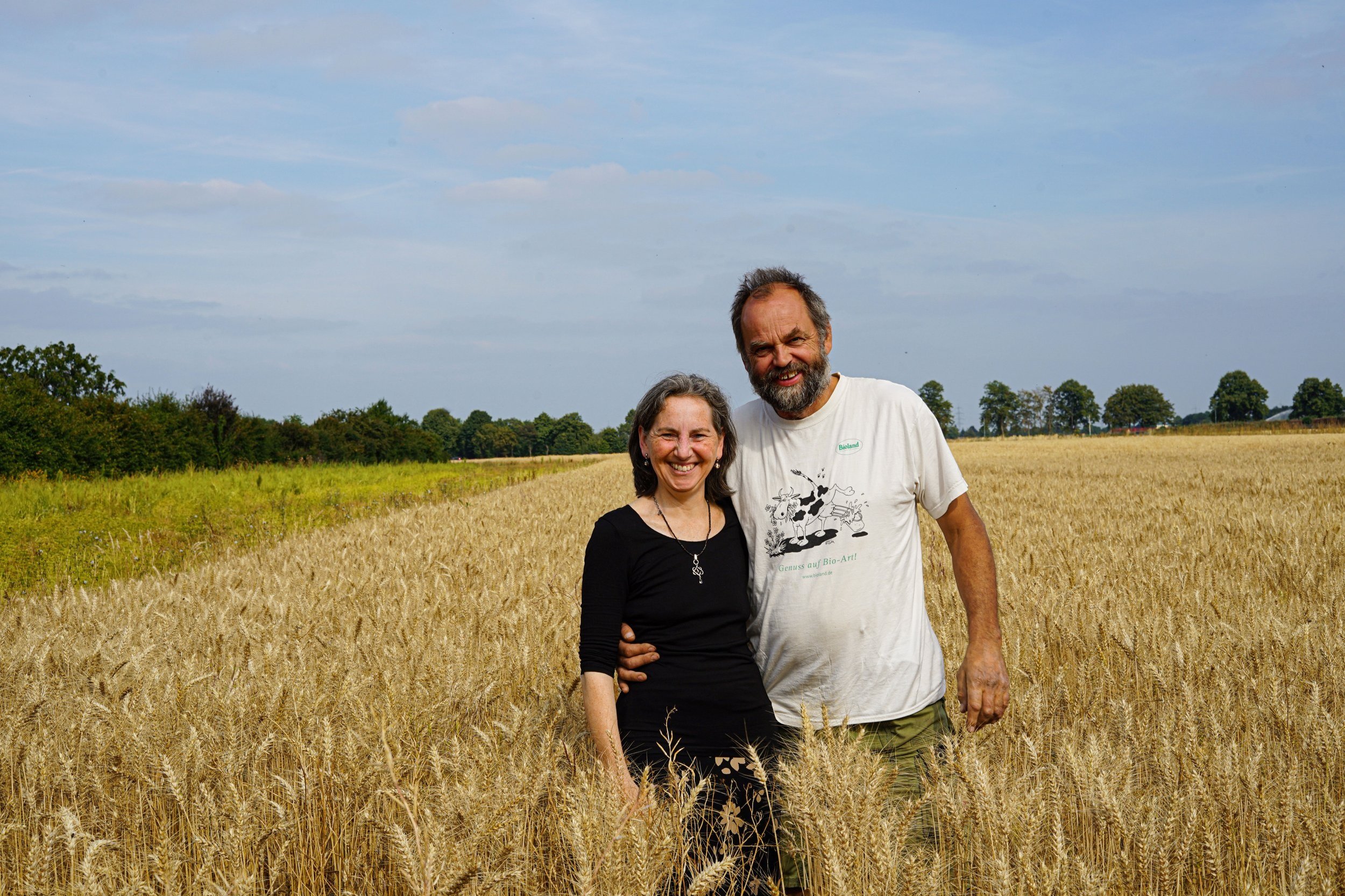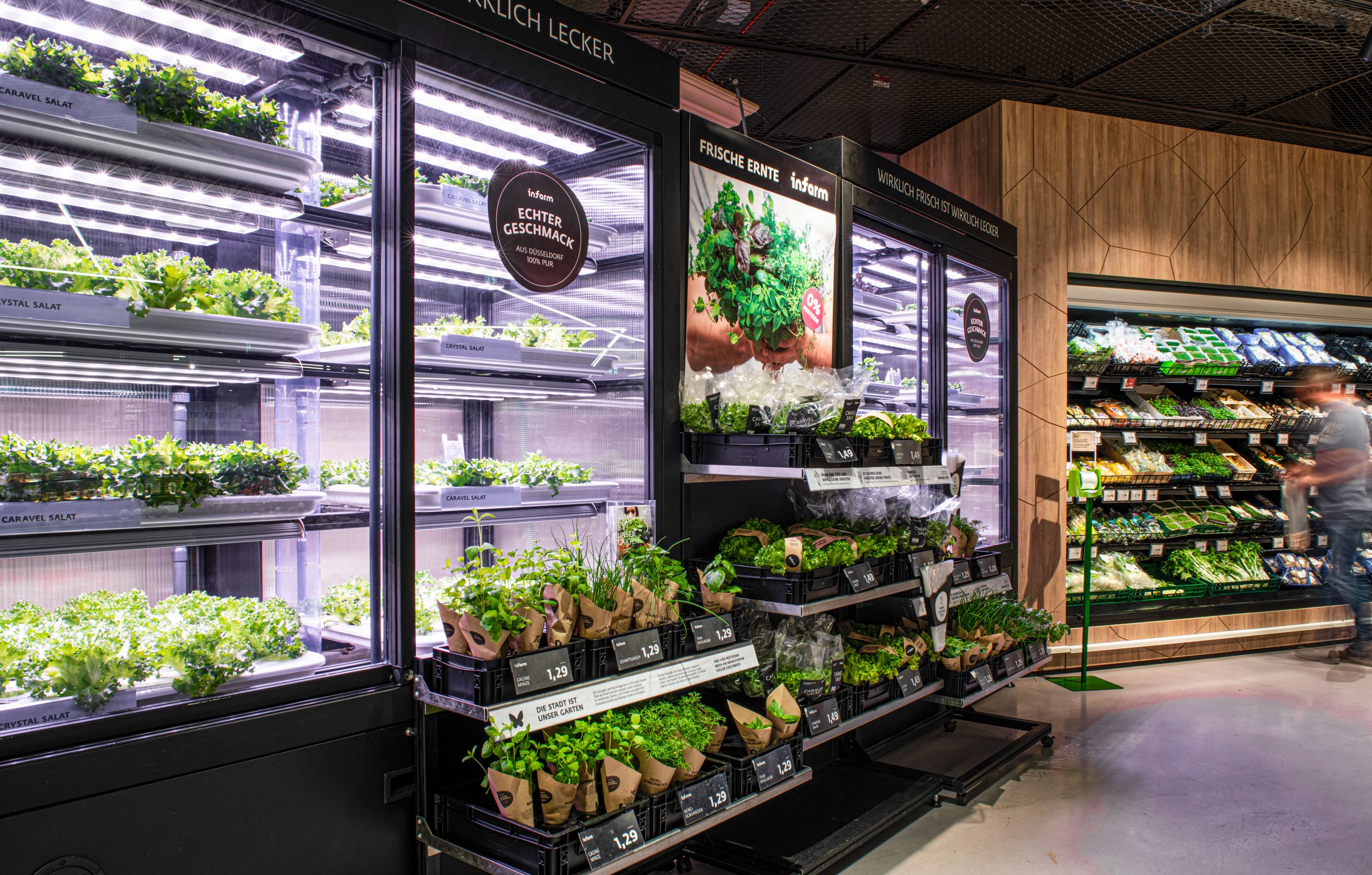Retail of the Future
Retail is the interface between sustainable products and consumers. How do companies in the region deal with this issue? And what sustainability concepts can be found in Düsseldorf’s retail landscape?
Sustainability has long since ceased to be a ‘trendy’ topic – on the contrary – nowadays, it is absolutely inconceivable for companies not to focus on climate-friendly and sustainable concepts. In a study conducted by the Gesellschaft für Konsumforschung (GfK) in July 2019, 31 percent of Germans said they attach importance to a healthy and sustainable lifestyle; in 2014, the figure was only 18 percent. And in particular companies were sought to make changes, as manufacturers were considered responsible for 40 percent of environmental damage and thus for controlling and limiting it.
The global player Henkel with its headquarters in Düsseldorf-Holthausen is leading by example. “Henkel has been driving the issue of sustainability for decades. It forms one of the five corporate values and is thus firmly anchored in the corporate culture”, says Mareike Klein, Global Sustainability Manager. The company’s commitment to climate protection is particularly important: by 2040, it aims to become a climate-positive company, as early as 2030 the CO2 footprint of its production sites is to be reduced by 75 percent, and 100 percent of the electricity required for production is to be sourced from renewable sources.
Increasing use is being made of renewable raw materials for the production of laundry detergents and household cleaners. In Beauty Care, too, Henkel is responding to the growing interest in natural cosmetics with brands and products whose ingredients are at least 98 percent natural in origin. By 2025, Henkel aims to reduce plastics from fossil sources by 50 percent. In addition, 100 percent of consumer goods packaging should then be recyclable or reusable.
The issue of sustainability in the production of food, especially agriculture, is definitely even more fundamentally important than in cosmetics. The Lammertzhof in Kaarst, which has been in the family since 1864, has been cultivated according to Bioland guidelines by Petra and Heiner Hannen for the last thirty years. In the generation of Heiner Hannen’s father, the farm specialized in pigs; the large amount of energy used, the nitrate levels in the groundwater due to intensive fertilization, but also the particular way that pigs were farmed then made Petra and Heiner Hannen rethink everything. In 1989, pigs were phased out and the fields were converted to organic farming. The harvest quantities then increased to such an extent that the ways produce was sold had to be expanded. This is how the idea of the vegetable subscription box was born: in 1994, the Lammertzhof started delivering the first vegetable boxes, and by 2000 they had become a bestseller – and they still are today. “Before the pandemic, we delivered to 1800 customers a week; at the moment, it’s 2600 customers a week”, Heinrich Hannen is pleased to say.
Petra Graute-Hannen and Heinrich Hannen are the owners of the Lammertzhof in Kaarst. In their work, the couple focuses above all on the responsible treatment of people, nature, animals and plants.
With regards to delivery, the company naturally relies on climate-friendly mobility. “We want to become CO2-neutral and soon deliver 45 percent of our vegetable boxes by e-cargo bike.” The next major project at the Lammertzhof is the switch to refrigeration with climate-friendly refrigerants. For heat generation, they now only use oil in exceptional times and have otherwise switched to wood pellets.
Industry and agriculture are leading the way to meet the requirements of a more climate-neutral society. What about the retail sector? The supermarket Zurheide operates at a total of seven locations, two of which are in Düsseldorf. The store at The Crown on Berliner Allee is one of the largest supermarkets in Germany, with an area of 12,000 m² and more than 60,000 products. For Managing Director Rüdiger Zurheide, the issue of sustainability has always been a high priority, “because we ourselves are constantly working to make our supermarkets and products more sustainable, as well as to protect resources”, he explains. This starts with offering alternatives to plastic bags, continues with the permanent search for environmentally friendly packaging or giving food to charitable organisations, and ends with the conversion of the refrigerated counters to a climate-friendly system.
In particular with regards to products the focus is on sustainability at Zurheide. “However, organic does not automatically mean sustainable. Whenever possible, we source organic products from our regional farmers, with whom we have a long-standing and trusting partnership.” When it comes to meat and fish, the company also works with regional partners who are particularly committed to animal welfare and species-appropriate husbandry. Is this what the supermarket of the future looks like? “I think that the sustainable supermarket of the future is above all a system that continuously learns and then adapts to the requirements of the times. With a lot of educational work and the will to find new alternatives, we can get closer to achieving this ambitious goal.”
“I think that the sustainable supermarket of the future is above all a system that continuously learns and then adapts to the requirements of the times.”
EDEKA-Zurheide focuses on organic, regional products and sustainability. The shop at The Crown on Berliner Allee is one of the largest supermarkets in Germany with an area of 12,000 m² and more than 60,000 articles.
While some look to the future, others know that not everything was worse in the past: Sabrina Ceccherini, owner of the vintage fashion store Stewardress on Lorettostraße in Unterbilk, not only sells fashion from the past. The concept of her store also pursues an important aspect of sustainability that is sometimes forgotten in times of online retail: making people the centre of attention. “Every customer who comes in should feel comfortable and is offered a drink. For me, this service and a personal consultation are part of the whole experience”, she tells us.
In addition to the unique looks of the vintage designer fashion she offers, Sabrina Ceccherini especially appreciates their good quality. “I have a big problem with fast fashion from chains like H&M. Many consumers unfortunately don’t think about the conditions under which these things are produced. We mainly sell fashion made in Italy or France, because I am demanding a lot of lasting value. It is better to buy a good piece that you will wear for many years than fashion that is a throwaway product”, she appeals. Her selected, high-quality pieces are appreciated by regular customers far beyond the borders of Düsseldorf. She herself also swears by the sustainability of her fashion treasures. “There’s a Pucci dress in my personal collection that I’ve had for 30 years, and it still looks like new, even though I must have washed it 100 times.” •
Words Katja Vaders
Pictures iStock, Lammertzhof, Zurheide / RUHR MEDIEN
Illustrations iStock



